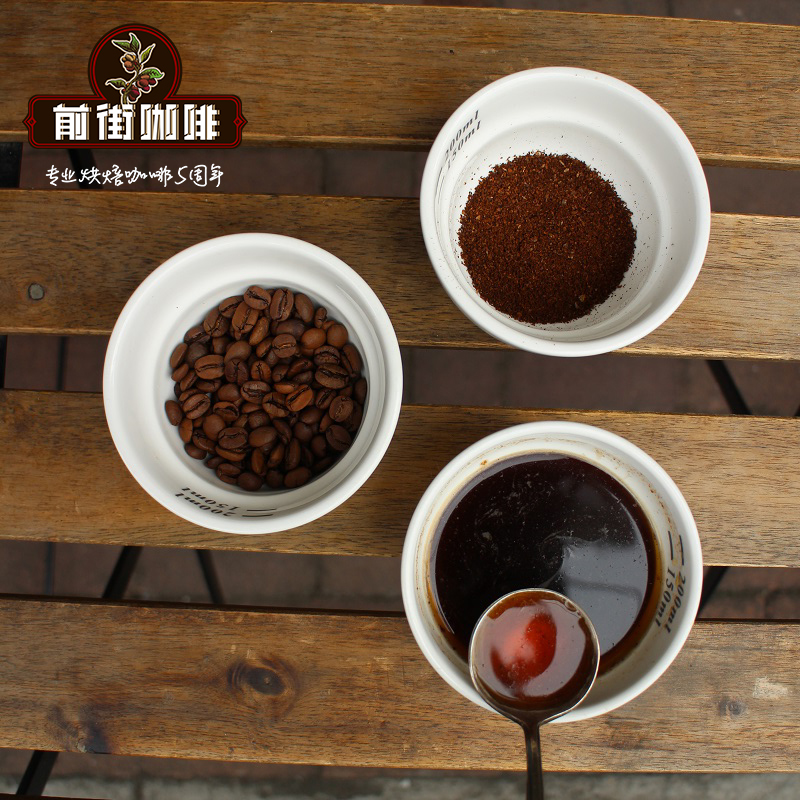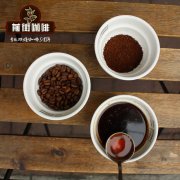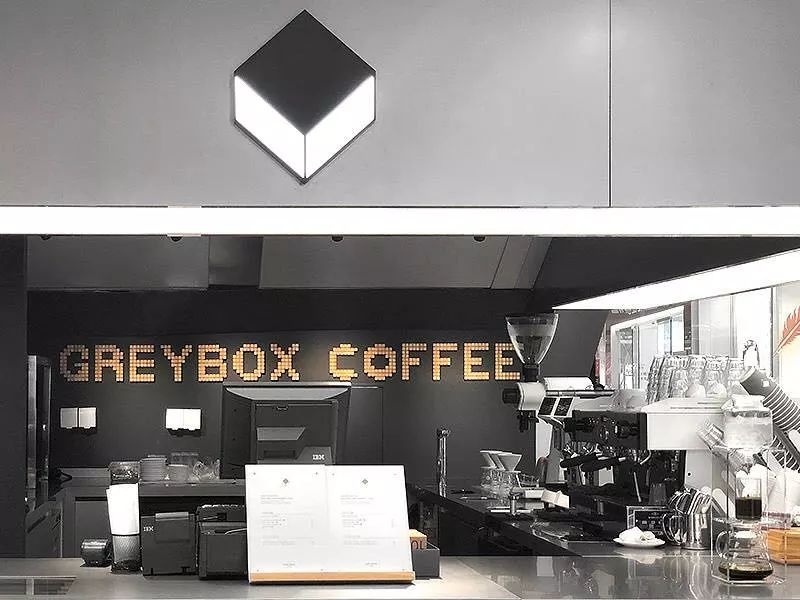What does Chinese coffee look like in the eyes of foreigners? Current situation of Coffee Market in China 2

Professional coffee knowledge exchange more coffee bean information please follow the coffee workshop (Wechat official account cafe_style)
Coffee was originally used as a drink for some high consumers or returnees in China. with the change of time, the domestic coffee market is getting better and better, and it has become a necessary drink for leisure and entertainment for most ordinary consumers. So what does the Chinese coffee market look like in the eyes of foreigners? Let's learn about it next.
Recently, foreign media said that coffee is squeezing into the Chinese market, which is dominated by tea culture, and the consumption of coffee here is likely to change from being the lowest in the world to leading in the world. China accounts for less than 2% of the world's coffee consumption, but the industry has begun to change.
According to the BBC website on July 14, 2005, Richard Chien opened a coffee shop in northeast China. At that time, a group of newly apprentice baristas could make about 900 cups of coffee a day, each costing 6 yuan-less than $1. Ten years later, he ran an advanced coffee school in Beijing. There, trainees spend hours learning about the aroma and tasting skills of coffee beans, and the coffee used during the training costs $6 per cup.
China's "economy has changed, and people increasingly understand different lifestyles." Richard Qian said, "they no longer see only tea."
Coffee consumption in China has nearly tripled in the past four years, ranking first of all the large markets it tracks, according to the USDA. The potential of the Chinese market is also huge: the country has a total population of 1.4 billion.
Starbucks is full of confidence in the Chinese market, so it plans to open its first international baking and experience center in Shanghai next year. The company believes that China will become its biggest market. The Seattle-based coffee chain already has more than 2000 stores in China and plans to add more in each of the next five years. Donndole, another US coffee chain, announced last year that it would add more than 1400 stores over the next 20 years, an increase of nearly a hundredfold.
The increase in coffee sales is a testament to China's transition to a consumption-driven economy, mainly due to changes in the willingness of the expanding middle class to spend, the report said. More and more Chinese are traveling abroad, some tasting espresso in Japan, and some finishing term papers in coffee shops in the United States. Unlike their parents, many of China's younger generation grew up surrounded by coffee shops.
"it happens to be at the sweet spot of casual household spending." Gao Zicheng, an investment professor at Peking University, said he was the co-author of "understanding Chinese consumers in an hour: five short stories to understand the brutal struggle of 1 billion consumers." To many Chinese, drinking coffee still seems like a hobby, but it is a luxurious way of life not far away.
In China's slowing economy, demand for other commodities is falling, but coffee seems to be an anomaly. The country's huge population base and almost untapped market offer unprecedented opportunities.
Chinese people drink an average of three cups of coffee per person per year, almost the lowest in the world, just above countries such as Sudan and North Korea, according to data provided by Ore International, a market research firm. By comparison, Americans drink an average of 363 cups of coffee a year, while Britons drink 250 cups of coffee.
Lei Xiaoshan, managing director of the China Market Research Group, said the Chinese craving for coffee has "completely changed the global supply chain." Coffee growers need to decide how to produce more beans for them in order to cater to Chinese tastes. "this has happened before, when the price of coffee beans soared as demand exceeded supply, and the situation was not alleviated until growers increased production."
The company estimates that coffee consumption in China will maintain a growth rate of about 20 per cent a year, a change that Mr Rein believes is largely due to women under the age of 30. "instead of buying Louis Vuitton bags, they turned their attention to experiential consumption." "Coffee culture is part of it," he said. "
Taste and cost pose a threat to China's burgeoning coffee market, especially outside urban areas with higher living standards, the report said.
"if you compare a coffee shop in China, especially a high-end coffee shop, with coffee shops in California and Boston, you will find that they sell less coffee every day." "it's not growing rapidly," said Peter Redosevic, a trader at Royal Coffee, a California coffee exporter.
For coffee to be truly successful in China, areas with fewer tourists must be convinced that coffee can supplement or even replace tea-especially for some unique coffee varieties, the report said.
The Wall Street Journal website has reported that demand for goods in China may be slowing as the economy slows, but coffee-even if expensive-is a rare bright spot in a country with a tradition of drinking tea. Analysts say demand for other luxury goods, including imported fresh fruit, is also growing rapidly, driven by changing tastes and a rapidly growing middle class.
Coffee represents "a Western way of life that is attractive to the upper class and middle class in cities" compared to tea, which is seen as a more traditional drink, according to Lafayette, a food and beverage analyst at BMI Research.
Important Notice :
前街咖啡 FrontStreet Coffee has moved to new addredd:
FrontStreet Coffee Address: 315,Donghua East Road,GuangZhou
Tel:020 38364473
- Prev

How far is the distance of the new retail Internet coffee?
Professional coffee knowledge exchange more coffee bean information please follow the coffee workshop (Wechat official account cafe_style) Internet coffee has become a trend, from the nature of coffee, let's study how far Internet coffee can go? Reviewing several attributes of coffee: refreshing and refreshing for most domestic consumers, they will think of refreshing when it comes to coffee so far.
- Next

Call yourself the "apple" of the coffee world! Disdain for Greybox at the top of the chain to be the first Chinese boutique coffee.
Professional coffee knowledge exchange more coffee bean information Please follow the coffee workshop (Wechat official account cafe_style) according to public data, GREYBOX COFFEE was founded to become the first boutique coffee in China within one year, to become the top three in the world in 3-5, and to become the number one boutique coffee brand in the world in 5-10. Curiosity Daily reported on June 21st.
Related
- What grade does Jamaica Blue Mountain No. 1 coffee belong to and how to drink it better? What is the highest grade of Blue Mountain coffee for coffee aristocrats?
- What are the flavor characteristics of the world-famous coffee Blue Mountain No. 1 Golden Mantelin? What are the characteristics of deep-roasted bitter coffee?
- Can I make coffee a second time in an Italian hand-brewed mocha pot? Why can't coffee be brewed several times like tea leaves?
- Hand-brewed coffee flows with a knife and a tornado. How to brew it? What is the proportion of grinding water and water temperature divided into?
- What is the difference between Indonesian Sumatra Mantinin coffee and gold Mantinin? How to distinguish between real and fake golden Mantelin coffee?
- What does bypass mean in coffee? Why can hand-brewed coffee and water make it better?
- Unexpected! Ruixing Telunsu lattes use a smoothie machine to foam milk?!
- % Arabia's first store in Henan opens into the village?! Netizen: Thought it was P's
- Does an authentic standard mocha coffee recipe use chocolate sauce or powder? Mocha Latte/Dirty Coffee/Salty Mocha Coffee Recipe Share!
- What is the difference between Vietnam egg coffee and Norway egg coffee? Hand-brewed single product coffee filter paper filter cloth filter flat solution!

